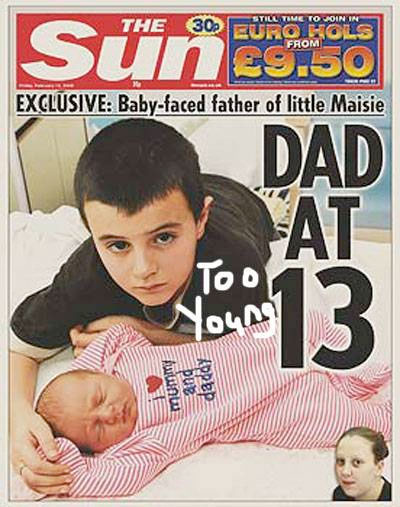She was 29 and I thought she was beautiful, although nobody else did, I am sure. No normal scales in my clinic could weigh her, but I would put her between four and five hundred pounds. Except for someone who brought her to see me ( I think, in the back of a pickup truck, but I did not press the issue) she did not leave the house. Others did her shopping, she had some kind of public assistance.
She was on the standard medication for her depression as well as her panic attacks; paroxetine (Paxil) 40 mg, to lower their intensity and frequency, and a little bit of Xanax, which is supposed to stop such attacks in their tracks. She used it sparingly, hardly at all — no really — she did not use it. It did not work. The most addictive medication doctors give for this sort of thing and she didn’t even want it because it didn’t work. I love this woman, I loved her candor. She told me the last psychiatrists had renewed these medications for the last six months, even though they didn’t work.
What was wrong??? Read more on Panic and Diabetes…
Filed under depression, Diagnosis, weight by on Sep 3rd, 2010. Comment. ![]()
I had seen this woman as a patient only once before, but I had seen more like her than I could count. She was in her late fifties, like me. Her gray hair fell in waves down her shoulders, Alice-in-Wonderland style. All of her clothing was childlike, too. If her hair had been blonde (as she had insisted it once was and was still meant to be) she would have looked, from the back, like a little girl in her calico dress.
She had been “traumatized” by her family. She didn’t want to talk about details and was more than a little surprised that I made no effort to push her to divulge them. She wanted to tell me about all the types of psychotherapy she had studied and learned, or even more she wanted to tell me about all of the great and famous figures of psychology she had met personally, and how wonderful they were.
 “I don’t care if you met God himself or—–herself.” She was not happy with my response, but by now she had enough sense not to be surprised. She was labeled as a “borderline personality disorder” as well as a “treatment resistant depression.” She had refused anything even remotely resembling an antidepressant; she was worried about all kinds of side effects. She was on diazepam (generic Valium) and would accept nothing else. Among other things, this drug would do a fine job of keeping her depressed. She would not consent to anything else and it seemed to have helped minimally with anxiety. The choice of medication had been only one in a garden of self-sabotaging choices. She had been a training patient for a couple of generations of therapists, none of whom seemed to have been able to do her the least bit of good. Read more on If You Are Stuck — Try Dancing…
“I don’t care if you met God himself or—–herself.” She was not happy with my response, but by now she had enough sense not to be surprised. She was labeled as a “borderline personality disorder” as well as a “treatment resistant depression.” She had refused anything even remotely resembling an antidepressant; she was worried about all kinds of side effects. She was on diazepam (generic Valium) and would accept nothing else. Among other things, this drug would do a fine job of keeping her depressed. She would not consent to anything else and it seemed to have helped minimally with anxiety. The choice of medication had been only one in a garden of self-sabotaging choices. She had been a training patient for a couple of generations of therapists, none of whom seemed to have been able to do her the least bit of good. Read more on If You Are Stuck — Try Dancing…
Filed under Psychotherapy by on Jun 10th, 2010. Comment. ![]()
“Just gimme the Prozac and let me outa here.”
In a clinic where most people were indigent and needed more than twenty clinics could give them (food, shelter, friends, job) this woman was well dressed and snappy. She looked a little like some petite actress, maybe Holly Hunter, playing a businesswoman.
In fact, she told me that she was a real estate broker and was not producing enough so that was the proof that she really needed her Prozac. She had been on it for a while, in steadily increasing doses, and now was on 60 mg. Over a couple of years, her dose had slowly been raised from the fairly standard 20mg.
It was a treatment for depression. I had no way — except notes written by previous psychiatrists long-gone — to figure out how depressed she had been when she had actually started on Prozac. And the old notes weren’t much help. Read more on “Just gimme the Prozac!”…
Filed under prescription drugs by on May 12th, 2010. 2 Comments. ![]()
He was an urban youth. I could not even determine his racial origin and I had to ask him (county regulations – tracking who it paid for – not my choice). It was mixed, and essentially indeterminate, a regular American melting-pot.
His head was shaved, so I could not make any guesses on the basis of hair type. There were facial tattoos, of the tribal sort, lots of triangles, but nothing as fiercely antisocial as some of the obscene drawings or sayings I had seen tattooed on prison inmates faces. Or in the case before me – ex-cons. And there was one of those little cylinders in his earlobe –the kind that men wear to stretch the open hole in their earlobes large enough to allow passage by a small sparrow. I believe the tradition is for tribal identity to prove something about achievement in the face of pain. It differs according to whom you ask, and this young man was not ripe for asking about that topic.
“I’m depressed. Real depressed.”
I wanted to know why. “I got kids. Seven of them, three different states. The seventh one was born three days ago. I was with the Mommy, and we were really happy because he looks just like me.”
Quite an achievement for someone only 22 years old. However, my congratulations did not bring him solace. “I guess you aren’t feeling too great about it, though, or else you wouldn’t be here, feeling depressed.”
At least he wasn’t suicidal. I could treat him as an outpatient. Read more on Male Postpartum Depression (Yes — MALE!)…
Filed under Family by on Apr 6th, 2010. 1 Comment. ![]()
I have just successfully completed a birthday. Something not as simple as it sounds, for I am in the age range where most women watch for additional wrinkles in the mirror and try to figure out what to do about them at best. At worst, people easily fall into a low self-esteem gutter of wondering why their lives have not gone as planned.
Moi, I think it is time to think about birthdays in different ways. 
I explained it to another mental health professional, who happened to be sitting in a nearby office, and who is six years older than me, almost to the day. She had a birthday a few days before mine, and was clearly in the throes of a birthday related depression, telling me how beautiful she used to be, and how good life was when people still paid attention to her.
Now granted, when my husband and I first moved to Southern California I wondered if they institutionalized people over 40, for they were simply not seen on the streets. Of course, I understand better now. First they give them multiple face and body lifts. Then, they move them to collectives in Palm Springs, where they sing off-key in certain piano bars.
Birthday depression is a common problem, and not something people often go to a physician for. It is usually something dealt with in terms of common wisdom, often repeated, rarely effective. It is more a subject of support groups than of research. Read more on How To Survive Your Birthday…
Filed under depression by on Feb 12th, 2010. Comment. ![]()
She was a depressed woman in her 50’s, on conventional antidepressants, who I saw in a clinic. She had none of the “neurovegetative” signs of depression. That means, she slept well and ate well and her mood was acceptable. All of the things that we generally measure in antidepressant response were there, so there was really not a lot more for me to do, except to renew the prescription. I did ask a few questions.
 Did she have a purpose in life? Yes, she had a job in a bookstore, which she enjoyed, and grown children, who had babies of their own, and she loved to play with them, but they lived a bit of a distance away, so she could not play with them as often as she liked.
Did she have a purpose in life? Yes, she had a job in a bookstore, which she enjoyed, and grown children, who had babies of their own, and she loved to play with them, but they lived a bit of a distance away, so she could not play with them as often as she liked.
So I asked her what was the most fun in her life. She started laughing wildly, and stamping her foot. I knew this had to be a good answer, and I was ready. I thought she was going to talk about drugs or sex. I was really surprised with what she came up with.
Read more on Happy Dances and the Contact High…
Filed under depression by on Dec 3rd, 2009. Comment. ![]()
